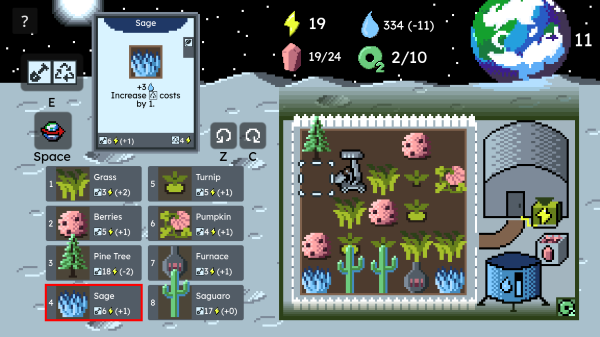I released my game, Moon Garden Optimizer. It’s a puzzle strategy game about growing a tiny garden on the moon while optimizing water usage. It’s inspired by deckbuilders like Dominion, but it supports unlimited undo.

You can play for free in browser on itch.
Most people are here because they like my writing, so I’ll mention that the game has writing! As a reward for beating challenges, there’s philosophical dialogue between the robot protagonist and her human manager. It’s fairly silly, but takes a bit of inspiration from modern AI. For example, the human has unwarranted confidence in the robot’s expertise.

